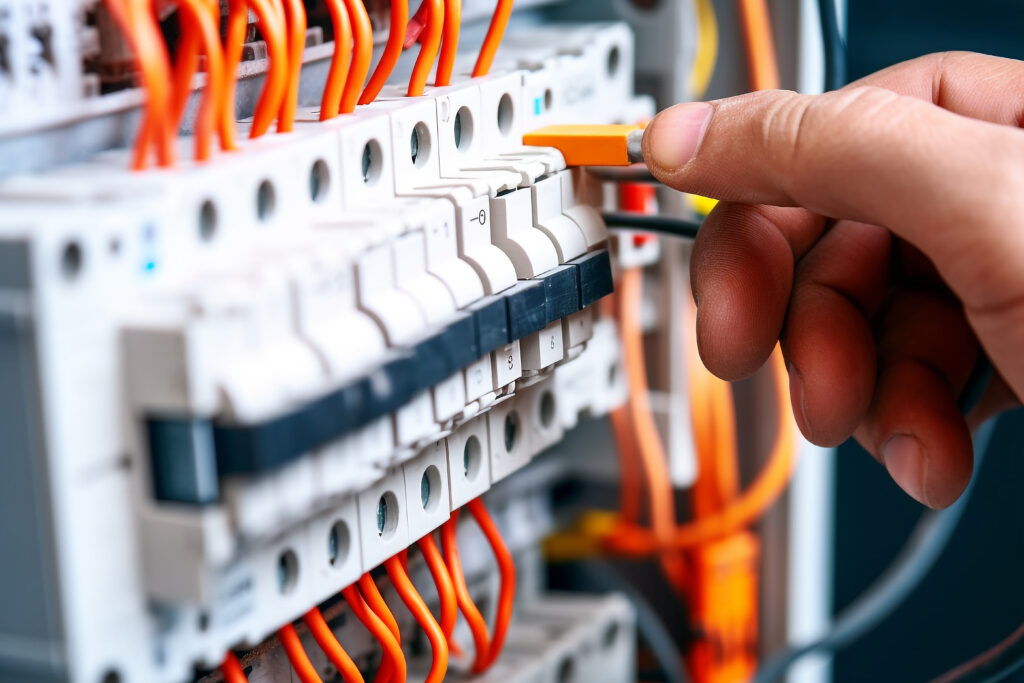Heating, Ventilation, and Air Conditioning (HVAC) systems are essential for keeping our homes comfortable throughout the year. They help us stay cool in the summer and warm in the winter. But have you ever wondered whether your HVAC system uses gas, electricity, or both? Let’s dive into some common questions to understand how HVAC systems work and what type of energy they use.

How Do I Know if My HVAC is Gas or Electric?
Figuring out whether your HVAC system uses gas or electricity is quite simple. Here are a few ways to find out:
- Check the Label: Look at the labels on your HVAC units. The label should indicate if the system is gas or electric.
- Inspect the Unit: Gas units usually have a pilot light or a gas burner, while electric units have a series of electrical connections and wiring.
- Consult the Manual: The user manual for your HVAC system will clearly state whether it is gas or electric.
- Ask a Professional: If you’re unsure, a licensed HVAC technician can quickly determine what type of system you have.
Are Most HVAC Systems Gas or Electric?
Both gas and electric HVAC systems are common, and the type you have can depend on several factors, including where you live and your personal preferences. In many regions, gas HVAC systems are more popular because they can be more efficient and cheaper for heating. However, in areas where electricity is more affordable or where there is no natural gas supply, electric HVAC systems might be more common.
Can HVAC Be Both Gas and Electric?
Yes, some HVAC systems can use both gas and electricity. These are often called dual-fuel or hybrid systems. In a dual-fuel system, the heat pump (which runs on electricity) is used during milder weather, and a gas furnace takes over when it gets too cold. This combination can offer the best of both worlds by providing efficient heating while keeping energy costs low.
Do All HVAC Systems Have Gas?
Not all HVAC systems use gas. Here are some types of HVAC systems and whether they use gas:
- Electric Heat Pumps: These systems use electricity to both heat and cool your home. They are common in milder climates.
- Gas Furnaces: These systems use natural gas to heat your home and are very common in colder climates.
- Electric Furnaces: These systems use electricity to produce heat and are usually found in areas where electricity is cheaper than gas.
- Dual-Fuel Systems: As mentioned, these systems use both electricity and gas to heat your home efficiently.
How Do I Know if My AC Has Gas?
Air conditioning units themselves do not use gas. They run on electricity to cool your home. However, if you have a combined HVAC system that includes both heating and cooling, the heating part might use gas. To determine if your heating system uses gas:
- Check the Heating Unit: Look for a gas line connected to the furnace or boiler.
- Listen for the Burner: When the heater is on, you might hear the sound of a gas burner igniting.
- Look for a Flue Pipe: Gas furnaces usually have a metal flue pipe to vent exhaust gases outside.
Which Is Cheaper: Gas or Electric HVAC?

The cost of running a gas or electric HVAC system can vary based on several factors, including the cost of electricity and natural gas in your area, the efficiency of your HVAC system, and how often you use it.
- Gas HVAC Systems: Generally, gas heating is cheaper than electric heating because natural gas tends to be less expensive than electricity. Gas furnaces also heat up faster and can be more efficient in very cold temperatures.
- Electric HVAC Systems: While often more expensive to operate for heating, electric systems can be more efficient for cooling. Electric heat pumps, in particular, are very efficient and can save money in milder climates.
Efficiency Considerations
When deciding between gas and electric HVAC systems, consider the efficiency ratings:
- AFUE (Annual Fuel Utilization Efficiency): For gas furnaces, this rating measures how efficiently the system converts gas into heat. A higher AFUE means better efficiency.
- SEER (Seasonal Energy Efficiency Ratio): For air conditioners and heat pumps, this rating measures cooling efficiency. A higher SEER means more efficient cooling.
Environmental Impact
Another important factor to consider is the environmental impact:
- Gas HVAC Systems: Burning natural gas produces carbon dioxide, contributing to greenhouse gas emissions.
- Electric HVAC Systems: The environmental impact depends on how the electricity is generated. If it comes from renewable sources like wind or solar, the impact is lower. However, if it’s generated from coal or natural gas, the impact is higher.
Conclusion
Understanding whether your HVAC system uses gas, electricity, or both can help you make informed decisions about heating and cooling your home. Both types of systems have their advantages and disadvantages, and the best choice for you depends on your specific needs, local energy costs, and environmental considerations. Whether you have a gas furnace, an electric heat pump, or a dual-fuel system, regular maintenance and efficient usage can keep your home comfortable while managing energy costs effectively.


